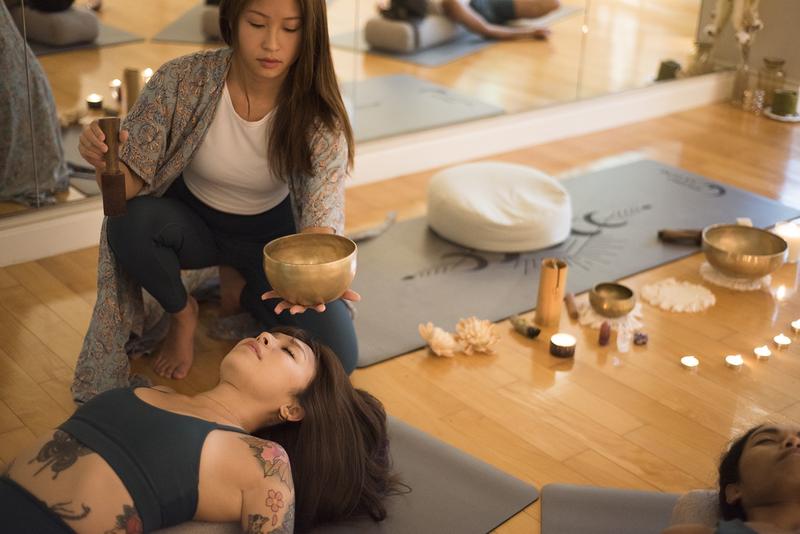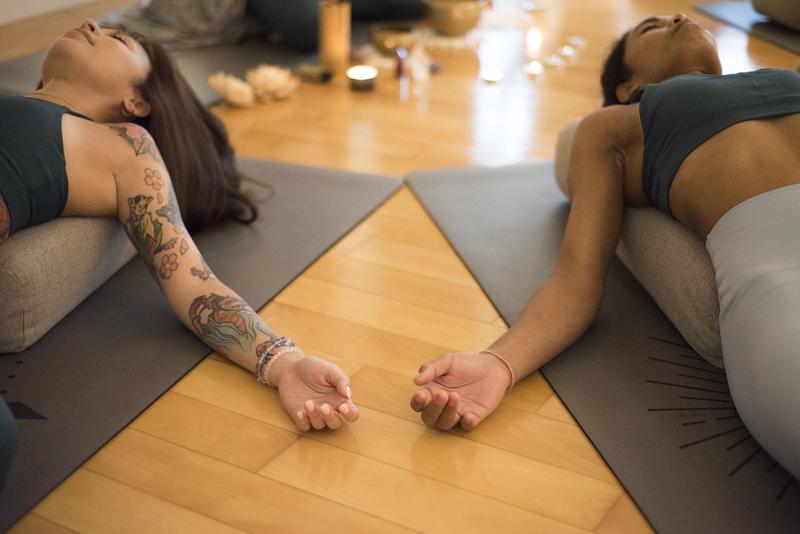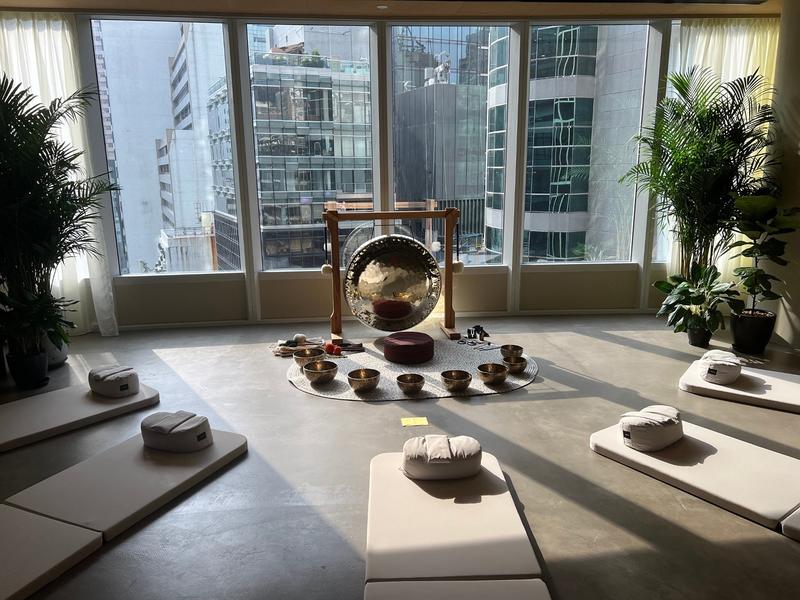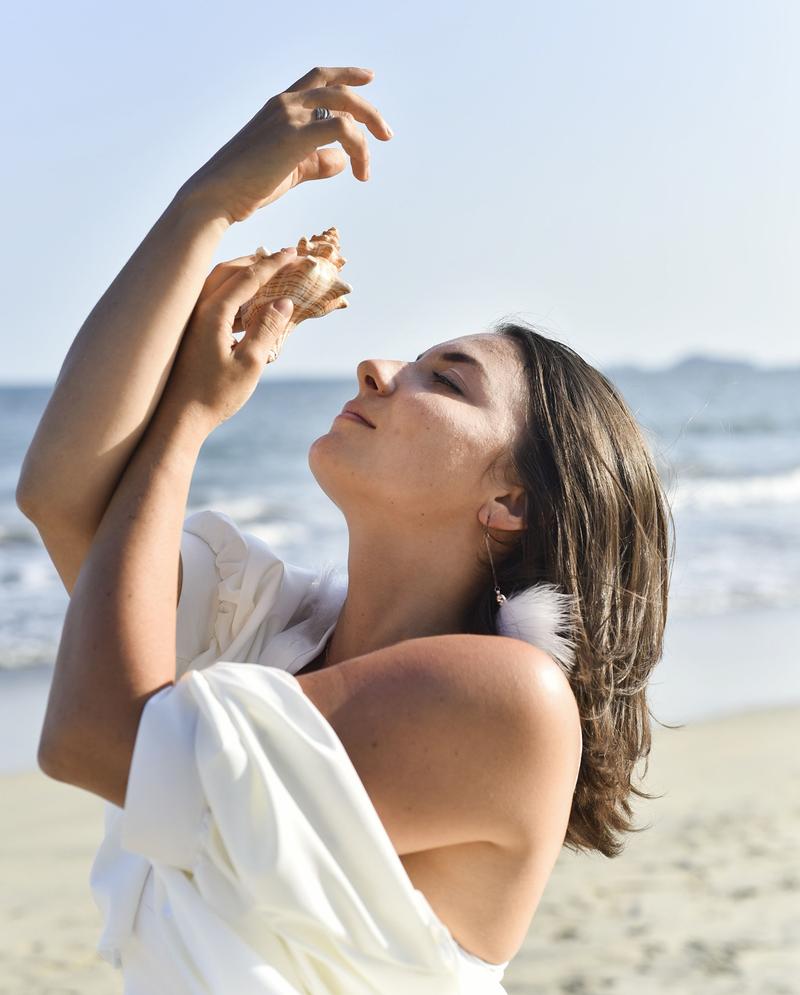As holistic healing gains more followers, Gennady Oreshkin asks if the aids to achieving wellness are indeed as potent as they are cracked up to be.
 Reiki therapy in progress at La Lune. (PHOTO PROVIDED TO CHINA DAILY)
Reiki therapy in progress at La Lune. (PHOTO PROVIDED TO CHINA DAILY)
According to a report published in the global market research database Euromonitor International in March, Hong Kong, Japan, South Korea and Singapore are among the world’s top 10 economies in terms of per capita spending on wellness. Not much of a surprise there, as the Asia-Pacific region is known for its robust faith in the culture of “holistic healing”.
Reiki remains one of the most popular means of pursuing the wellness goal in this part of the world. Classified as a type of “energy healing”, reiki is defined as “a two-and-a-half-millennia-old system of healing based on the belief in a universal flow of energy that penetrates all living beings,” as per the Routledge publication Introduction to Alternative and Complementary Therapies (2007).
A quick search on the internet reveals there are at least a dozen wellness outfits offering reiki treatments in Hong Kong. One of these is La Lune — a women-only wellness studio founded by Anna Cabannes.
“It’s really about understanding that the energy is universal. The flow of energy is everywhere, and you can channel this energy to specific points in clients’ bodies,” says Cabannes.
She believes that reiki’s healing potential is far-reaching. “I think whatever you want to be healed can be healed,” she claims, adding that reiki could be an effective panacea in sorting out both physical and emotional issues.
 Reiki therapy in progress at La Lune. (PHOTO PROVIDED TO CHINA DAILY)
Reiki therapy in progress at La Lune. (PHOTO PROVIDED TO CHINA DAILY)
However, it’s equally possible that practicing reiki might not yield the desired result. “It might work for you and not for me,” Cabannes says, insisting that those who sign up for the treatment need to work out “your own healing path”. Each person’s reiki “journey is unique,” she points out.
Back in 2015, the Cochrane Library (a collection of databases in medicine and healthcare specialities) published a widely-cited review of reiki’s potential in healing depression and anxiety, authored by J. Joyce and G.P. Herbison. Their analysis of more than 700 published studies, studies awaiting classification, as well as cases undergoing treatment, showed no evidence of reiki’s healing effect.
Four years later, however, a report titled “A Large-Scale Effectiveness Trial of Reiki for Physical and Psychological Health” was published in the Journal of Alternative and Complementary Medicine. Based on case studies provided by 99 reiki practitioners in the United States, it was concluded that “a single session of Reiki improves multiple variables related to physical and psychological health”.
However, all cases were getting reiki treatment at the time of conducting the survey. In other words, the efficacy of the healing system was not tried out on anyone without a history of exposure to it.
 A space to cultivate mindfulness at mindish. (PHOTO PROVIDED TO CHINA DAILY)
A space to cultivate mindfulness at mindish. (PHOTO PROVIDED TO CHINA DAILY)
Smoke and mirrors
Crystals are also rather popular among Hong Kong people having faith in the idea of holistic healing. Integrated Medicine Institute (IMI) Hong Kong, often billed as Asia’s largest alternative medicine clinic, reports that crystals can “correct energetic imbalances in our bodies and promote physical, mental and emotional wellbeing”. IMI’s experts suggest getting a piece of malachite at home to treat anxiety, citrine to “navigate waves of uncertainty”, smoky quartz to promote focus and rose quartz for self-fulfillment, and “inner peace”.
Cristina Rodenbeck, the institute’s executive and wellness coach and a licensed wellness practitioner, has put together a range of crystals that “offer a way to stay centered and calm”.
Not everyone in the wellness business is ready to buy into the idea of crystal therapy though.
Hasanal Lythgoe-Zafrullah, founder of mindish, a new mental health therapy facility in Hong Kong’s Central, for instance, is not totally convinced. “I think, in some ways, it has the placebo effect on people. If it’s not causing any harm and gets them through the day, they go for it.”
Crystals with healing properties could sell for tens of thousands of Hong Kong dollars a stone. A piece of celestite geode, for example, which supposedly helps “stabilize all chakras”, could be priced at upwards of HK$20,000 ($2,550) on online shopping portals — an expensive piece of home décor, in case it fails to effect the desired changes in the customer’s life.
 Anna Cabannes of the wellness studio La Lune says there is no universal panacea in reiki: “It might work for you and not for me.” (PHOTO PROVIDED TO CHINA DAILY)
Anna Cabannes of the wellness studio La Lune says there is no universal panacea in reiki: “It might work for you and not for me.” (PHOTO PROVIDED TO CHINA DAILY)
Power of the word
Self-help books continue to enjoy a steady market in Hong Kong. Among the current favorites are The Subtle Art of Not Giving a F---: A Counterintuitive Approach to Living a Good Life (Harper Collins) by Mark Manson; the School of Life Press publication Mind and Body: Physical Exercises for Mental Wellbeing, Mental Exercises for Physical Wellbeing; and Atomic Habits: An Easy and Proven Way to Build Good Habits and Break Bad Ones (Penguin) by James Clear.
According to the American writer Steven Phillips-Horst, books like these usually neatly fit into a paradigm. The genre, he says, is aimed at vindicating popular sentiments by applying “circular logic”, typically featuring nameless experts and dubious research without necessarily making any attempt to provoking the reader into exercising their intelligence.
Familiar, everyday hacks are often repackaged using new terminology. For example, performing two tasks in quick succession is called “stacking”, while the act of rewarding oneself after several completed tasks is termed as “temptation building”.
 Hasanal Lythgoe-Zafrullah, founder of the mental health therapy facility, mindish, says people buying crystals to correct the “energy imbalance” at home often psych themselves into believing that they do. (PHOTO PROVIDED TO CHINA DAILY)
Hasanal Lythgoe-Zafrullah, founder of the mental health therapy facility, mindish, says people buying crystals to correct the “energy imbalance” at home often psych themselves into believing that they do. (PHOTO PROVIDED TO CHINA DAILY)
Similarly, the hacks provided by the various Instagram life-coaches — and there is a glut of them in Hong Kong — more often than not boils down to waking up early, working out regularly (preferably at a fashionable gym the life-coach in question is affiliated with), eating healthy, and leafing through any or all of the aforementioned self-help books.
One such popular Hong Kong life coach, with a much-followed Instagram account, started off as a personal trainer, switching to being a dating coach after a while and seems to have settled for a “nutrition and lifestyle coach” for the time being. This person regularly posts enigmatic videos about “being stuck in a vicious cycle” (whatever that means; the context is not mentioned), and Insta-stories of studying undisclosed reading material and yet manages to run a thriving business by dint of their online presence.
The hype around wellness appeals to the human desire for validation and quick-fix solutions. Besides, wellness is often packaged as something cool and modern, stirring a fear of missing out in potential customers who tend to forget that good old-fashioned healthy habits like maintaining a balanced diet, following a daily exercise regimen and being able to switch off from time to time could be just as effective.


